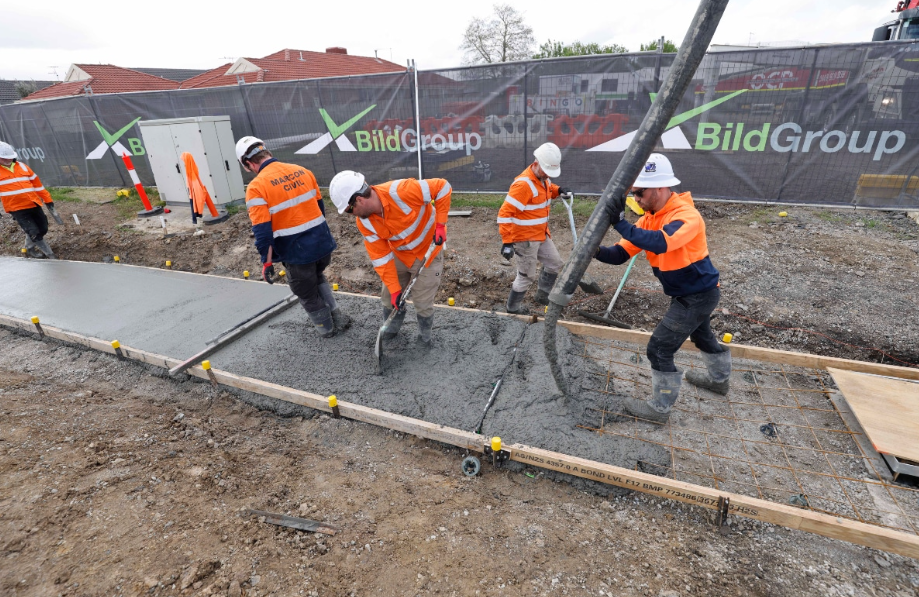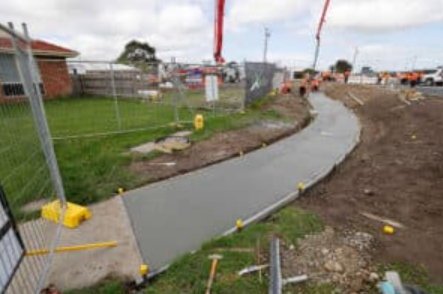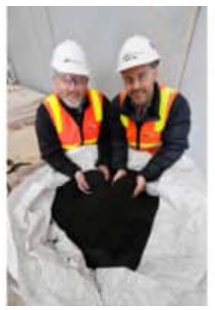
A concrete innovation from RMIT University has debuted in a major infrastructure project as part of Victoria’s Big Build.
Major Road Projects Victoria (MRPV) and project contractor BildGroup have used concrete mixed with biochar made from spent coffee grounds, as a replacement of a portion of the river sand that is normally used, in the Pakenham Roads Upgrade.
“These numbers are remarkable in terms of ecological benefit, and we’re excited to see the Pakenham Roads Upgrade be the first Victorian Big Build project to use the coffee concrete,” Brendan Pauwels, program director at MRPV, said.

As part of this, Earth Systems converted five tonnes of spent coffee grounds – about 140,000 coffees worth of grounds – into two tonnes of useable biochar, which has been laid into the 30 metres cubed footpath. The coffee grounds are converted into biochar as the organic waste cannot be added directly into concrete because it decomposes over time which would weaken the building material over time.
According to RMIT University, Australia generates 75 million kilograms of ground coffee waste every year, most of which goes into landfill. But the new use in major infrastructure could create a circular building material usage.
The RMIT University innovation is one of the many circular economies initiatives delivered within the Pakenham Roads Upgrade. Indigenous-owned coffee supplier Talwali Coffee Roasters provided the used ground coffee for the research.

Dr Rajeev Roychand, a postdoctoral fellow at RMIT University, has led the coffee innovation with RMIT’s research.
“This proactive support plays a significant role in creating a potential for diverting all forms of biodegradable organic waste, which is currently ending up in landfills and contributing to 3% of Australia’s greenhouse gas emissions,” Roychand said.
BildGroup chief executive officer Stephen Hill added: “With the coffee concrete we’ve poured, we’re diverting an estimated 140,000 coffees from landfill and saving over three tonnes of sand, which have enormous environmental benefits,” he said.
“From a triple bottom line perspective, this just makes good business sense.”
Article Credit: quarrymagazine